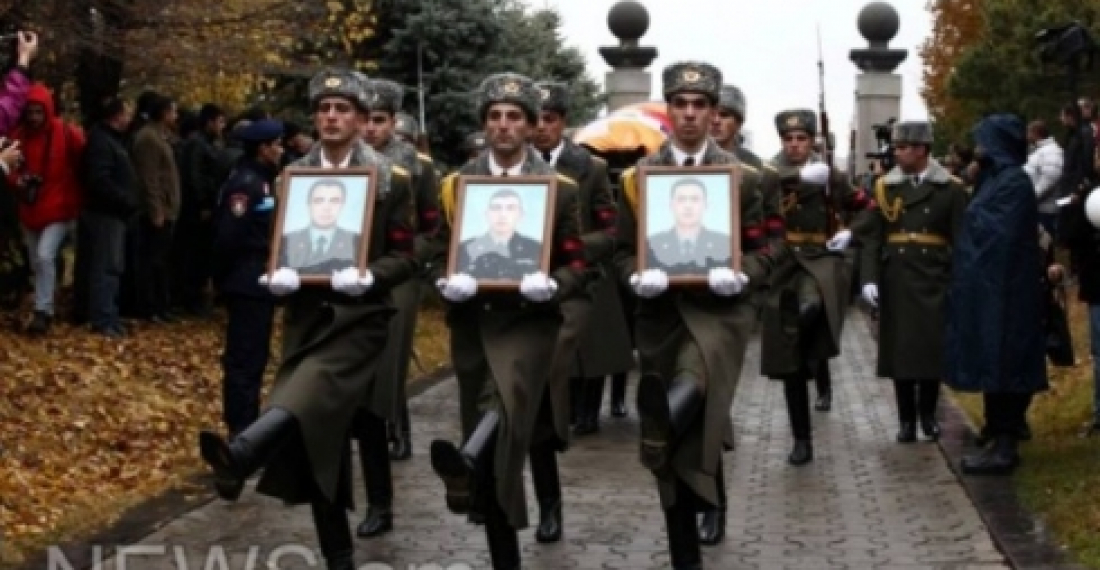Армения похоронила трех пилотов, погибших, когда один из военных вертолетов был сбит азербайджанскими силами вблизи линии соприкосновения, разделяющей две стороны в зоне нагорно-карабахского конфликта.
Погибшими оказались майор Сергей Саакян, а также старший лейтенант Саркис Назарян и лейтенант Азат Саакян.
Инцидент с вертолетом рассматривается как серьезная эскалация военного противостояния между армянами и азербайджанцами, которая продолжается в течение многих лет. Существует опасение, что инцидент приведет к началу нового витка насилия в регионе.
Сопредседатель Минского процесса ОБСЕ от США, посол Джеймс Уорлик, в комментарии азербайджанскому агентству АПА заявил: "Инцидент 12 ноября стал трагедией, и такие инциденты следует избегать в будущем. Мы призываем стороны проявить сдержанность и переориентировать свои усилия на мирные переговоры и прочное урегулирование нагорно-карабахского конфликта. Кроме того насилие и месть подорвут мирные переговоры и будут препятствовать решению гуманитарных проблем, которые возникли в результате конфликта ".
За кулисами предпринимаются интенсивные усилия, чтобы удержать стороны в мирном процессе. Министры иностранных дел Армении и Азербайджана должны на следующей неделе встретиться в Швейцарии в кулуарах встречи министров иностранных дел ОБСЕ.
источник: commonspace.eu
фото: Похороны трех армянских летчиков, погибших 12 ноября во время инцидента со сбитым вертолетом. (фото любезно предоставлено news.am).






